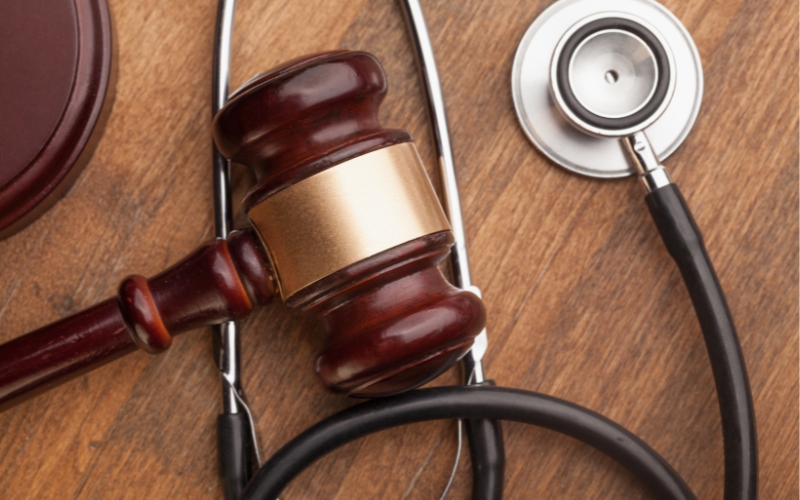
A wrong diagnosis can turn your world upside down. Whether it’s a missed diagnosis, delayed diagnosis, or one that’s simply incorrect, it can lead to serious consequences for your health, well-being, and peace of mind.
You may have been wrongly treated for a condition you didn’t have or, worse, missed out on critical treatment for the right one. If you suspect this has happened to you, the next steps are crucial in securing your future.
Timing is key when it comes to legal action. Reaching out to a wrong diagnosis attorney as soon as possible can make all the difference in the outcome of your case.
But how do you know when to contact one, and what should you expect from the process?
This blog will guide you through those important questions and help you understand how a skilled attorney can fight for your rights. From the signs of a wrong diagnosis to the legal steps you should take, let’s walk through the key factors that can help you take control of your situation.
What Constitutes a Wrong Diagnosis?
A wrong diagnosis occurs when a medical professional incorrectly identifies a patient’s condition, leading to improper treatment. It can involve misidentifying the symptoms or overlooking important information that would lead to the correct diagnosis. This can cause harm, delay recovery, and even result in long-term health issues.
Types of Wrong Diagnoses:
- Cancer: Mistaking cancer for a less serious condition can delay crucial treatments.
- Heart disease: Misreading symptoms can lead to untreated heart conditions.
- Infections: Misdiagnosing infections can cause them to worsen.
- Other conditions: Including diabetes, neurological disorders, and autoimmune diseases.
Impact on Health:
- Incorrect diagnoses can worsen the original condition or lead to harmful treatments.
- Patients may suffer from unnecessary procedures or medications.
- Delayed treatment can lead to complications, worsening symptoms, or death.
Signs You May Have a Wrong Diagnosis Case
If you suspect that you’ve been misdiagnosed, you need to look for specific warning signs. These signs can help you determine if you need to contact lawyers for legal help with the wrong diagnosis.
- Clear Symptoms:
- If your symptoms persist despite treatment.
- If new, unrelated symptoms appear after a diagnosis.
- If multiple healthcare providers disagree on your diagnosis.
- The Importance of Second Opinions:
- Getting a second opinion can clarify if your diagnosis is incorrect.
- If two or more doctors disagree on your diagnosis, it might be time to investigate.
- A second opinion often highlights missed or misinterpreted symptoms.
When Should You Contact a Wrong Diagnosis Attorney?
Timing is crucial when dealing with a wrong diagnosis case. The sooner you act, the better your chances of receiving compensation and justice. A wrong diagnosis lawyer can help guide you through the process.
- When to Reach Out:
- If you’re unsure about your diagnosis and suspect a mistake was made.
- After experiencing worsened symptoms despite treatment.
- If your condition is not improving or has gotten worse.
- Red Flags That Prompt Action:
- Delayed diagnosis of serious conditions like cancer or heart disease.
- Misinterpretation of lab results or medical history.
- Incorrect treatments are prescribed or unnecessary procedures.
How Can a Wrong Diagnosis Attorney Help?
Wrong diagnosis lawyers specialize in handling cases involving medical errors. They can provide invaluable support by ensuring your rights are protected, and you receive proper compensation for any harm done.
- Legal Assistance and Guidance:
- Wrong diagnosis lawyers can guide you through the legal process and ensure all steps are followed.
- They help you understand your rights and the potential compensation you’re entitled to.
- Gathering Evidence:
- Attorneys collect medical records, expert opinions, and witness statements to build a strong case.
- Expert witnesses and medical professionals can be consulted to support your case.
What Are the Potential Consequences of Waiting Too Long?
The statute of limitations restricts how long you can wait before filing a claim. Delaying your decision to contact a wrong diagnosis attorney can severely limit your chances of winning your case.
- Statute of Limitations:
- The legal time frame varies by state but is typically 1-3 years from the date of discovery.
- If the deadline passes, you may lose your right to sue.
- Risks Involved in Waiting:
- The longer you wait, the harder it becomes to collect evidence.
- Witnesses or records may no longer be available.
- Delaying your case may negatively affect the outcome.
What to Expect When You Contact a Wrong Diagnosis Attorney
When you first contact a wrong diagnosis attorney, expect an initial consultation where your case will be reviewed in detail. This is an essential step in determining if you have a valid claim.
- Initial Consultation:
- The attorney will ask about your symptoms, diagnosis, and treatment history.
- They will explain the legal process and the potential outcomes.
- Documents and Medical Records:
- Be prepared to provide medical records, test results, and any relevant paperwork.
- This helps the attorney understand your case and begin gathering evidence.
How Do Attorneys Prove Wrong Diagnosis Cases?
Proving a wrong diagnosis case requires solid evidence and the help of medical professionals. Wrong diagnosis lawyers play a crucial role in collecting evidence and proving negligence.
Gathering Evidence:
- Medical records, lab results, and second opinions are essential.
- Expert testimonies from specialists can support your claim.
Proving Negligence:
- Attorneys must show that the medical professional failed to meet the standard of care.
- Failure to diagnose or misinterpreting symptoms can be key to proving negligence.
Common Mistakes to Avoid When Dealing with a Wrong Diagnosis
When dealing with a wrong diagnosis, it’s easy to make mistakes that can hurt your case. Avoiding these errors can improve your chances of a successful outcome.
Not Seeking Legal Help Immediately:
Delaying legal advice can harm your case, especially with tight statutes of limitations.
Failing to Document Your Medical History:
Without clear records of your symptoms and treatments, proving misdiagnosis becomes more difficult.
Misunderstanding Your Rights:
Many patients don’t realize that they may be entitled to compensation for medical errors. Consulting a wrong diagnosis lawyer ensures you understand your rights.
If you suspect you’ve been the victim of a wrong diagnosis, acting quickly is crucial. With the help of skilled wrong diagnosis lawyers, you can navigate the complexities of medical malpractice claims. Don’t let missed diagnoses impact your health or your future. Contact an attorney as soon as possible to protect your rights and secure the justice and compensation you deserve. Your health and well-being are too important to leave to chance—take the first step today.



